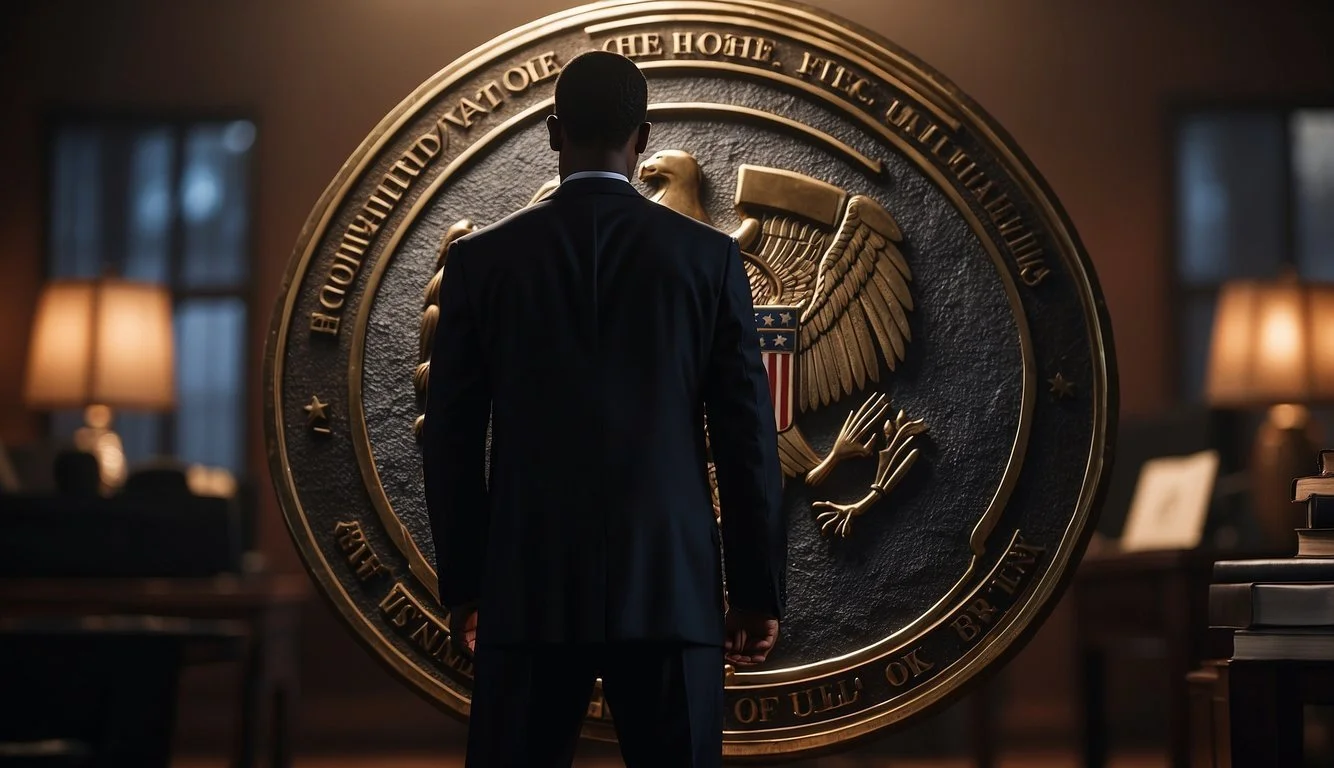Documentary Review: MLK/FBI (2020)
A Deep Dive into Historical Surveillance
"MLK/FBI" (2020), directed by Sam Pollard, is a gripping documentary that uncovers the FBI's surveillance and harassment of Martin Luther King Jr. during the civil rights movement. This film sheds light on the disturbing tactics used by the FBI under J. Edgar Hoover to undermine King's efforts and damage his reputation. Using newly declassified documents and insightful interviews, it reveals the extent of the government's efforts to suppress a pivotal figure in American history.
The documentary paints a vivid picture of the FBI's obsession with King, driven by a mix of paranoia and political maneuvering. It highlights how the Bureau's intrusive and often illegal surveillance tactics were weaponized to counteract King's influence. This story is not just about the past; it resonates powerfully in today's context, reflecting ongoing struggles with government surveillance and civil rights.
The film reconstructs the historical backdrop against which these events unfolded, providing viewers with a deeper comprehension of America's socio-political landscape at the time. Its critical exploration of the intricate dynamics between King's leadership and the FBI's intimidation tactics offers a compelling narrative that encourages reflection and discourse.
Historical Context
"MLK/FBI" explores the complex and often adversarial relationship between Dr. Martin Luther King Jr. and the FBI during the Civil Rights Movement, under the direction of J. Edgar Hoover.
Civil Rights Movement
The Civil Rights Movement of the 1950s and 1960s sought to end racial segregation and discrimination against African Americans in the United States. It was marked by major legislative and social victories, such as the Civil Rights Act of 1964 and the Voting Rights Act of 1965. Key figures, including Dr. Martin Luther King Jr., led nonviolent protests and civil disobedience.
Significant events, such as the Montgomery Bus Boycott and the March on Washington, symbolized the struggle for equality. The movement faced violent opposition from segregationists and law enforcement, showcasing the societal divisions of the era. During this period, King's leadership made him one of the most influential figures in American history.
J. Edgar Hoover and the FBI
J. Edgar Hoover served as the Director of the FBI from its inception in 1935 until his death in 1972. Under his leadership, the FBI engaged in extensive surveillance and intelligence activities, which included monitoring civil rights leaders like Dr. King.
The FBI's activities, part of COINTELPRO (Counter Intelligence Program), aimed to disrupt and discredit civil rights organizations. Hoover believed that these movements were influenced by communist elements, justifying the FBI's intrusive tactics. Notably, the agency went as far as to wiretap King's phones and infiltrate his inner circle.
These actions were part of a larger campaign of harassment that revealed the FBI's deep mistrust of the Civil Rights Movement.
Documentary Synopsis
MLK/FBI (2020), directed by Sam Pollard, is a documentary that examines the United States government's surveillance and harassment of Dr. Martin Luther King Jr. during the 1960s. The film is based on newly declassified files, providing a deep dive into the tactics used by the FBI, led by J. Edgar Hoover.
The documentary uses a mix of archival footage, interviews, and re-enactments. It features insights from historians, former FBI agents, and civil rights leaders, contributing to a comprehensive narrative. The film explores how the FBI attempted to undermine King's influence within the civil rights movement.
Pollard's approach centers on the tension between King's public persona and the FBI's portrayal of him. The film covers key events and documents the extensive efforts to discredit him. Audiences are shown both the inspirational aspects of King's leadership and the relentless scrutiny he faced.
MLK/FBI addresses critical themes of government overreach, civil rights, and personal privacy. The documentary sheds light on the conflict between King's quest for equality and Hoover's determination to maintain the status quo.
Featuring compelling testimonies from contemporaries of King and those who have studied his life, the film provides a thought-provoking examination of a pivotal era in American history. The documentary is not only a historical overview but also a meditation on the complexities of leadership under surveillance.
Filmmaking Techniques
"MLK/FBI" employs a combination of narrative structure, cinematic elements, and archival material to create a compelling documentary that brings to light the FBI's surveillance of Martin Luther King Jr.
Narrative Structure
The documentary utilizes a nonlinear narrative to weave together historical events and personal moments in Martin Luther King Jr.'s life. This approach juxtaposes his public achievements with the private pressures he faced. By shifting between past and present, the film underscores the ongoing relevance of King's struggle against government surveillance. Interviews with historians and contemporaries of King provide context, while the inclusion of declassified FBI documents adds a layer of authenticity and official insight.
Cinematography
The cinematography of "MLK/FBI" focuses on creating an intimate yet critical view of its subject. Director Sam Pollard employs a mix of black-and-white and color footage, enhancing the historical tone. Close-up shots of interviewees capture the emotional weight of their testimonies. The visual style is straightforward, avoiding unnecessary dramatization, thus allowing the gravity of the material to speak for itself. This approach also highlights the contrast between King’s public persona and the invasive government surveillance, providing a visual metaphor for his dual existence.
Use of Archives
"MLK/FBI" makes extensive use of archival footage and newly declassified FBI files. The documentary intersperses these materials with interviews and narrated reflections. Archival clips of King's speeches, protests, and moments with family are paired with FBI memos and surveillance recordings. These elements are skillfully edited to reveal the extent and intrusiveness of the FBI’s actions. The archival materials not only provide historical context but also amplify the documentary's exposé of government overreach, making King's perseverance even more poignant.
Themes and Messages
The documentary "MLK/FBI" addresses crucial themes around surveillance, media manipulation, and racial injustice, examining their impact on Martin Luther King Jr. and his legacy.
Surveillance and Privacy
The F.B.I.'s extensive surveillance of Martin Luther King Jr. reveals a troubling aspect of governmental overreach. J. Edgar Hoover's agency monitored King's activities, phone calls, and private life with the aim of discrediting him. This constant
Critical Analysis
"MLK/FBI" (2020) presents an insightful exploration of the FBI's surveillance and intimidation tactics against Martin Luther King Jr. under the direction of J. Edgar Hoover. It delves into the personal and political battles King faced, shedding light on the era's socio-political landscape.
Director's Perspective
Sam Pollard, the director of "MLK/FBI," meticulously handles the subject, combining archival footage with expert interviews. Pollard focuses on the ethical dilemmas and power struggles of the 1960s civil rights movement.
His approach blends a narrative that humanizes King while exposing the systematic harassment by the FBI. This balanced portrayal ensures the documentary remains insightful and thought-provoking, compelling viewers to critically engage with the content.
Historical Accuracy
The documentary ensures a high level of historical accuracy, employing a wealth of primary sources, including recently declassified FBI files and firsthand testimonies. It corroborates these accounts with historical records, providing a comprehensive view of the government's surveillance efforts.
This factual integrity allows the audience to fully appreciate the gravity of the FBI's actions and their implications. The detailed evidence supports a truthful retelling of Martin Luther King Jr.'s struggles against systemic oppression.
Public Reception
"MLK/FBI" has been well-received by critics and audiences alike, praised for its meticulous research and compelling narrative. Critics have highlighted the film’s ability to humanize King while unmasking the extent of the FBI’s surveillance.
Its release at the 2020 Toronto International Film Festival garnered significant attention, setting the stage for a wider discussion on civil liberties and governmental overreach. The public response underscores the documentary's impact and relevance in contemporary discussions on state power and civil rights.
Interviews and Commentary
The documentary MLK/FBI (2020) features a range of insights from experts and personal reflections from participants closely connected to the events and figures discussed.
Experts and Historians
Experts and historians provide vital context and analysis throughout the documentary. Sam Pollard, the director, includes commentary from scholars like Beverly Gage and David Garrow, who delve deeply into the historical accounts of FBI surveillance on Martin Luther King Jr. They highlight the extensive and often invasive nature of the FBI's operations, driven by J. Edgar Hoover's determination to undermine King's influence.
The experts examine how the FBI's actions were both a reflection of and a catalyst for broader societal tensions of the era. They discuss the use of surveillance tapes and documents to illustrate the pervasive culture of fear and control within the FBI. Through their commentary, viewers gain a deeper appreciation of the complexity and gravity of the FBI's campaign against King.
Participants' Reflections
The documentary also incorporates reflections from individuals who were directly involved or affected by the events. These personal accounts bring an emotional and humanizing perspective to the narrative. Family members of Martin Luther King Jr. and civil rights activists share their memories, providing intimate insights into King's personal and public life.
Participants recount their experiences of the FBI's surveillance, describing a constant sense of intrusion and the psychological impact it had on them and their families. These reflections underline the human cost of the FBI's actions, adding a layer of personal tragedy to the historical facts presented by the experts. By incorporating these voices, MLK/FBI delivers a powerful blend of scholarly analysis and personal testimony.
Societal Impact
The documentary MLK/FBI explores the intense scrutiny and surveillance Martin Luther King Jr. faced from the FBI under the leadership of J. Edgar Hoover. This relationship highlights the broader tension between civil rights activism and governmental authority during the 1960s.
King's efforts to promote racial equality and justice were met with systemic opposition. The documentary unveils the extent of the FBI's attempts to discredit him, which included invasive surveillance and smear campaigns.
The film underscores the resilience of King and the civil rights movement. Despite the FBI's relentless efforts to undermine his work, King remained a symbol of hope and perseverance for many Americans seeking social change.
MLK/FBI also serves as a reminder of the power dynamics at play during a turbulent period in American history. It illustrates how state mechanisms can be used to stifle dissent and control narratives, impacting public perception and the progress of social movements.
This documentary has contemporary relevance. In an era of heightened political division and renewed focus on civil rights, the historical context provided by MLK/FBI offers valuable insights into the ongoing struggles against systemic injustice.
By presenting a candid look at King and the FBI's actions, MLK/FBI prompts viewers to reflect on issues of privacy, governmental overreach, and the enduring fight for justice in society.
Conclusion
"MLK/FBI" provides an in-depth look at the FBI's surveillance of Dr. Martin Luther King Jr. during a pivotal time in American history. Sam Pollard's documentary sheds light on the extent of the FBI's actions and the impact on King's life and legacy.
Utilizing previously hidden documents, the film explores the complex relationship between King and J. Edgar Hoover. The documentary is bolstered by interviews with historians and those close to King.
The film humanizes King by highlighting his emotional struggles. It also emphasizes the tremendous risks he took in standing up against state power. "MLK/FBI" serves as a poignant reminder of the challenges faced by leaders fighting for justice.
Pollard's work achieves a balance between historical documentation and personal narrative. It prompts viewers to reflect on the ethics of surveillance and the role of government in citizens' lives. The film's relevance in today's polarized political landscape cannot be overstated.
"MLK/FBI" combines historical footage, personal testimonies, and expert analysis. This blend creates a detailed and engaging narrative, making it a vital resource for understanding this critical chapter in American history.
The documentary leaves a lasting impression by urging audiences to consider the moral implications of the FBI's actions. It underscores the enduring struggle for civil rights and the sacrifices of those who lead the charge.
Through its meticulous research and compelling storytelling, "MLK/FBI" is an important addition to the documentation of Dr. King's enduring legacy.



